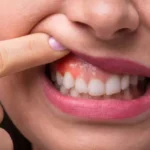Key Takeaways
- You can’t regrow enamel, but you can strengthen and protect it through natural remineralization.
- Diet, saliva, and oral care habits play a huge role in restoring minerals to your teeth.
- Small daily changes — like using mineral-rich toothpaste or eating calcium-packed foods — make a big difference.
- Remineralization is a slow but steady process, not an overnight miracle.
To naturally remineralize your teeth, focus on restoring calcium, phosphorus, and magnesium through mineral-rich foods, use remineralizing toothpaste (like those containing hydroxyapatite), stay hydrated to boost saliva production, avoid acidic drinks, and maintain a consistent oral care routine. These steps help rebuild weakened enamel and protect your teeth from decay — naturally.
Introduction: The Day My Tooth Yelled at Me
Let me paint you a picture:
It was a lazy Sunday morning. I bit into a scoop of my favorite ice cream — and ouch! My teeth felt like tiny lightning rods. That’s when it hit me: my enamel wasn’t as tough as I thought.
If you’ve ever winced from hot coffee or felt that zinging pain from cold water, trust me, you’re not alone. That sensitivity often means your enamel — the shield that guards your teeth — is wearing down.
The good news? Your body has an amazing built-in repair system called remineralization. And with a few smart changes, you can help your teeth restore their strength — naturally. Let’s dive in!
Understanding Tooth Remineralization
Think of enamel as your teeth’s armor. It’s made mostly of minerals like calcium and phosphate. But every time you sip soda or munch on candy, acids in your mouth start dissolving those minerals — a process called demineralization.
Remineralization is the opposite: it’s when minerals are redeposited into the enamel from your saliva or diet. While enamel can’t “regrow,” it can be reinforced and made more resilient through natural care.
Signs Your Teeth Need Remineralization
If you notice any of these, your enamel might be waving a white flag:
- Tooth sensitivity to hot, cold, or sweet foods
- White, chalky, or dull spots on teeth
- Rough or translucent edges
- Persistent bad breath
- Dullness despite regular brushing
If that sounds familiar, don’t panic — it’s reversible with the right approach.
Why Modern Diets Hurt Your Tooth Enamel
Our modern lifestyle isn’t exactly enamel-friendly. Here’s why:
| Culprit | How It Hurts | Better Alternative |
|---|---|---|
| Soda & sugary drinks | Strips minerals and increases acidity | Water, herbal tea, milk |
| Processed snacks | Feed harmful bacteria | Nuts, cheese, veggies |
| Frequent snacking | Keeps mouth acidic | Limit snacks between meals |
Even “healthy” juices can erode enamel because of their acidity. Balance is the name of the game — and your saliva is your secret superhero.
Read Also: How to Extract a Broken Tooth at Home
7 Powerful Ways to Naturally Remineralize Your Teeth
Eat More Mineral-Rich Foods
Your teeth crave the same nutrients as your bones.
Here’s what to pile on your plate:
- Calcium-rich foods like cheese, yogurt, sardines, and almonds
- Phosphorus from eggs, meat, and fish
- Magnesium from leafy greens, avocados, and dark chocolate (yes, chocolate — just keep it dark!)
A balanced diet gives your enamel the building blocks it needs to stay strong.
Boost Saliva Production
Saliva is your mouth’s natural repair fluid — it neutralizes acids and supplies minerals.
Try these simple hacks:
- Stay hydrated throughout the day.
- Chew sugar-free gum to trigger saliva flow.
- Snack on fibrous foods like apples or carrots.
Dry mouth = unhappy enamel. Keep things moist!
Use Remineralizing Toothpaste or Powders
Not all toothpaste is created equal. Look for these enamel-loving ingredients:
- Hydroxyapatite (a fluoride alternative that mimics natural enamel)
- Xylitol, which reduces cavity-causing bacteria
- Calcium phosphate, to replenish lost minerals
Pro tip: Use gentle, circular motions when brushing. Scrubbing like you’re sanding wood only makes things worse!
Oil Pulling for Oral Detox
This ancient Ayurvedic practice isn’t just a trend — it helps reduce harmful bacteria that cause demineralization.
How to do it:
- Take 1 tablespoon of coconut oil.
- Swish it around your mouth for 10–15 minutes (think mouth yoga).
- Spit it out in the trash, rinse, and brush as usual.
It sounds odd, but my teeth felt cleaner and smoother after a week of trying it.
Avoid Acidic and Sugary Drinks
Acidic drinks are enamel’s worst enemy. Even “sugar-free” sodas can erode teeth because of citric acid.
Try this instead:
- Sip through a straw to minimize contact.
- Rinse with water afterward.
- Wait 30 minutes before brushing — enamel is soft right after acid exposure.
Your morning coffee and evening wine can stay — just treat them kindly.
Try Natural Supplements
Sometimes food alone isn’t enough. These supplements can help:
- Vitamin D3 – aids calcium absorption
- Vitamin K2 – directs calcium to teeth and bones
- Magnesium – helps balance calcium levels
Always check with your dentist or doctor before starting new supplements.
Maintain a Consistent Oral Care Routine
Remineralization isn’t magic — it’s maintenance.
Here’s what consistency looks like:
- Brush twice daily with a soft-bristled toothbrush
- Floss gently (yes, it matters)
- Use a non-alcoholic mouthwash to protect enamel
- Avoid brushing right after acidic meals
It’s like skincare for your teeth — daily care leads to long-term glow.
Read Also: 7 Proven Ways to Cure TMJ Permanently
Common Myths About Tooth Remineralization
Let’s bust a few:
- ❌ “You can regrow enamel.” – Nope, but you can strengthen what’s left.
- ❌ “Fluoride is the only solution.” – Hydroxyapatite and xylitol are great natural alternatives.
- ❌ “You can fix cavities at home.” – Early ones, maybe; deeper ones, see your dentist!
When to See a Dentist
If pain, sensitivity, or visible damage persists, it’s time to call in the pros.
Dentists can:
- Assess enamel loss with scans
- Apply professional remineralizing treatments
- Suggest sealants or fluoride varnishes for extra protection
Think of it like tuning up your car — preventive care saves you from bigger repairs later.
Preventing Future Enamel Loss
Here’s how to keep your teeth in top shape long-term:
- Limit acidic foods and sugary snacks
- Drink more water, less soda
- Use remineralizing toothpaste daily
- Eat crunchy fruits and veggies to naturally clean teeth
- Visit your dentist every six months
Little habits, big results.
Read Also: How to cure gum disease without a dentist
Frequently Asked Questions
Not completely, but minerals can be replenished to strengthen existing enamel.
You may notice less sensitivity within a few weeks, but full mineral balance takes a few months of consistent care.
It helps reduce bacteria and acids, but it’s best used with brushing and flossing, not instead of them.
In small, controlled amounts — no. But natural alternatives like hydroxyapatite can be just as effective.
Summary
Remineralizing your teeth naturally is about giving your enamel the love it deserves — through mindful eating, gentle oral care, and consistency. It’s not a quick fix, but over time, you’ll notice a stronger, brighter, and pain-free smile.
So, the next time your teeth feel sensitive, skip the panic and reach for a glass of water, some leafy greens, and your favorite remineralizing toothpaste. Your smile will thank you.



GIPHY App Key not set. Please check settings